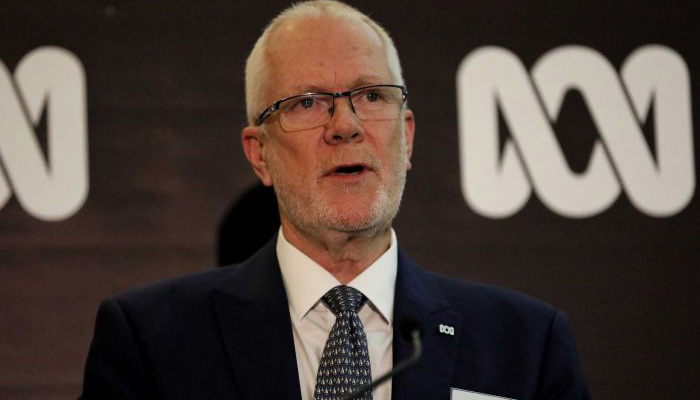The turmoil and controversy surrounding the leadership of the ABC is scandalous. But what is of real significance to us all in the high drama is not the personal issues and failings of individuals. It's the broader plot of misleadership of the ABC, and what this means for us all in a Trumpean post-truth era.

Change management: There is an urgent need for new models for strategic governance, and new capabilities from those responsible, Badham says. Picture: Pablo Delgado Hernandez.
What captures our immediate interest, of course, is the high drama, worthy of a Nordic Noir thriller. Who or what killed off Michelle Guthrie? We have been introduced to the suspects, but the circumstances of her ‘death’ are intriguingly unclear.
Was it the responsibility of Justin Milne, as the autocratic voice of his mates in the Liberal Party or a weak and panicky victim of Canberra pressure? Was it a weak and incompetent Board, providing no control over a rogue Chairman and no support for the MD?
Was it a rising tide of resentment and internal undermining from the ABC staff, delightedly chanting the ‘Ding Dong, the Queen is dead’ over her departure? And who was Michelle Guthrie? Was she the Casper of the ABC, equivalent to Michael Turnbull’s Canberra ghosts, unseen and unheard by her disenfranchised staff?
Was she justifiably punished as an arrogant and abrasive leader, unable to enthuse the ABC employees and establish a good working relationship with Canberra? Or, was she a champion of ABC independence, supporting staff threatened by external intervention? Was she a strong forward looking female leader pursuing an intelligent strategy in a white man’s stronghold and a culture locked into the past?
The truth is, we just do not know. Much like the scandal surrounding the ordination of Brett Kavenaugh to the US Supreme Court, our opinions about character and actions shift as the latest juicy tidbit is revealed. Our prejudices keep us interested, and the ambiguity keeps us enthralled.
The old governance model no longer works

Stakeholder management fail: Neither Justin Milne as ABC Chairman nor Michelle Guthrie as MD properly performed their roles independantly or in combination, says Badham.
But there is far more involved here. The government, and those it has put in place at the ABC, are responsible for the ABC’s scandalous misleadership. The Catch 22 is, that we are relying on those responsible for this problem to solve it.
Like it or not, we live in a Trumpean era of Orwellian Newspeak, in which assertions of ‘fake news’, ‘alternative facts’ and witchhunts against journalistic ‘thought crimes’ have become the stock in trade of dangerously arrogant and narcissistic politicians.
The role of the ABC in helping protect and inform the Australian public in this situation is a critical and challenging one. To carry it out successfully, however, requires new and more effective forms of leadership.
The old era of CEO/MD responsibility for executing strategy with routine oversight from a distant Chairman and Board is no longer sufficient. This traditional 20th century Oversight-Planning model of governance is being replaced in leading organisations by a modern twenty-first century Strategic-Doing model. As an illustration, note the career and success of Eric Schmidt, ex-Executive Chairman and CEO of Alpahabet, Google’s parent company, as well as being on the Board of Apple.
'Strategic-Doing' the new buzz word in governance
Within this Strategic Doing model, Chairmen, Boards, CEOs/MDs and Executive Teams are genuine collaborators in a Decide-Do/Refine-Do process. They form a strategic coalition around two intertwined agendas: shaping and influencing the increasing demands of external stakeholders, rather than being their victim; and inspiring and supporting internal stakeholders to drive adaptation and change, rather than grudgingly accepting or even opposing it.
This model requires both the Chairman and the CEO/MD to perform a number of roles.
The Chairman has three key roles: to forge an effective working relationship with the CEO/MD, to integrate the Board as an effective team, and to work with the Board to manage external stakeholders and the CEO/MD and Executive Team in developing and executing strategy.
The CEO/MD has three primary roles: to effectively work with the Chairman to ensure effective stakeholder management and establish conditions for long term strategic viability, to weld the Executive into an effective coalition for change, and to engender trust, commitment and support amongst the staff for rapid and effective change.
Neither Justin Milne as Chairman nor Michelle Guthrie as MD properly performed these roles. Independently, and in combination, they were unable to work effectively in shaping and responding to the, arguably, increasingly intrusive demands of the government. Nor did they effectively motivate ABC staff by gaining their trust nor align them around the new content/digital strategies.
And who appointed them? The same government that has been roundly condemned in recent months for its lack of understanding of its own leadership responsibilities. It should, perhaps, be no surprise that Mitch Fifield, as Minister for Communications, frequently ignored the advice of his independent advisory panel in appointing members of the Board.
Scott Morrison says the ABC leadership now needs to get on with the job. But is the current leadership of the Liberal Party, and the ABC leadership they have put in place, to be trusted with knowing what that job is, let alone carry it out? How can we create an ABC leadership that strategically does what its Charter proclaims and requires?
This is the drama that is of key importance, and should be of central concern to us all.



